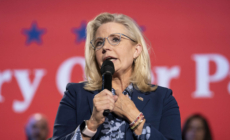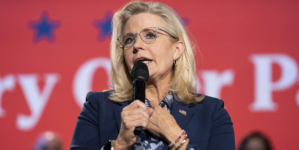-
Man who tried to take over self-driving taxi taken into custody in downtown L.A., police say - 19 mins ago
-
Does Josh Allen or Lamar Jackson have the better MVP case after 17 weeks? | The Facility - 22 mins ago
-
Justin Bieber’s Wife Hailey Shares Rare Glimpse of Jack - 29 mins ago
-
The stakes couldn’t be higher in rare Vikings-Lions Week 18 showdown - about 1 hour ago
-
Woman’s theory on the color pink sparks viral debate - about 1 hour ago
-
January is National Hobby Month — Here are three easy ones to start - about 1 hour ago
-
Stray Dog Chases Down Woman’s Car, Tears Over What Happens Next - 2 hours ago
-
Is it right for the Eagles to sit Saquon Barkley short of the record? | Breakfast Ball - 2 hours ago
-
China targets dozens of U.S. companies ahead of anticipated Trump tariffs - 2 hours ago
-
MAGA Furious Over Liz Cheney’s Medal From Biden: ‘Clown Award’ - 2 hours ago
Trump election win delights Orban and Europe’s far-right
These are not just kind words but the product of deep ties that have been cultivated between the European far right and Trump’s Republican Party.
Chief among these is Orbán, 61, who has become an unlikely darling to Trump and other Republicans, who have hosted him and courted his political advice.
“Orbán is the model” for Trump’s team, said Jason Stanley, a Yale philosophy professor and the author of the new book “Erasing History: How Fascists Rewrite the Past to Control the Future.” “They bring him over, they meet with him,” Stanley said, arguing that Orbán’s most attractive quality is the 14 years “he has managed to remain in power” — making him the European Union’s longest-serving leader.
Orbán has done this, according to researchers, by passing laws curtailing judicial independence; stacking government agencies and institutions with party loyalists; and creating a pro-government media landscape by threatening fines or suspensions for “unbalanced” or “amoral” news reports.
His grip on power has become such that the European Parliament calls his rule an “elective autocracy.” And from this platform, he has portrayed refugees as a threat to Christian culture — describing migrants as “poison” and Muslims as “invaders” — and passed supposedly anti-pedophile laws that in fact conflated that crime with LGBTQI+ issues.
It’s a platform he says he has been increasingly exporting to Republicans.
“We have entered the program-writing system of President Donald Trump’s team, and we have deep involvement there,” he said in a July lecture. Trump meanwhile described Orbán in January as a “very great leader” and “a very strong man.”
I will send a message. In the meantime could sted this
When the Hungarian visited Trump at his Florida Mar-a-Lago resort in March, President Joe Biden accused his Hungarian counterpart of “looking for dictatorship.”
NBC News has asked the Trump team for comment on these criticisms as well as its links to far-right parties in Europe.
The label of far right is rejected by Orbán’s Hungarian party, Fidesz.
“If the left wants to portray us for for being far right on illegal immigration, the only thing I can say is: We are far right on illegal immigration, in the sense that the left is far wrong because they are promoting lawlessness” at the borders, said Fidesz lawmaker László.
This isn’t just about platitudes between leaders.
An Orbán-linked think tank called the Danube Institute has developed ties with the Washington-based Heritage Foundation, which led the Project 2025 policy road map. Trump has disavowed the 900-page blueprint for reorganizing swaths of politics and society along hard-right lines, despite some of his former aides’ involvement in writing it.
Nevertheless, in public, Trump has backed mass deportation, said he would use the legal system to punish political opponents, and threatened to deploy the military and National Guard against left-wingers whom he describes as “the enemy within.”
Trump and his team have denied he is a fascist, and he described himself last month as “the opposite of a Nazi.”
The prospect of a new alliance between these trans-Atlantic political bedfellows is deeply alarming for independent experts, activists and political opponents.
In Trump’s first term, heavy hitters such as German leader Angela Merkel and France’s Emmanuel Macron presented themselves as rational, mainstream counterweights to the president’s most norm-busting outbursts. Now, Merkel is long gone and Macron is severely weakened.
Europe’s new political topography has moved to the right, where Wilders has called for the “de-Islamization” of the Netherlands, Austria’s Freedom Party wants to push through “remigration” of Austrian nationals with migrant backgrounds, and the Brothers of Italy party uses the fascist, Benito Mussolini-era motto: “God, family, fatherland.”
Though the party’s leader Meloni has softened her image internationally, forging ties with Biden and the E.U., at home she has overseen a controversial program to process migrants in Albania, declared her personal opposition to abortion and backed anti-surrogacy laws that critics say discriminate against same-sexcouples.
Now, Trump’s election means Orbán will be far less isolated and may even become the political bloc’s conduit to Trump.
“There’s a learning process the Trump movement is doing with these people,” said Stanley, the Yale professor. “Their use of Orbán is very, very effective and very smart.”
Alexander Smith reported from London and Carlo Angerer reported from Munich, Germany.
Source link





























